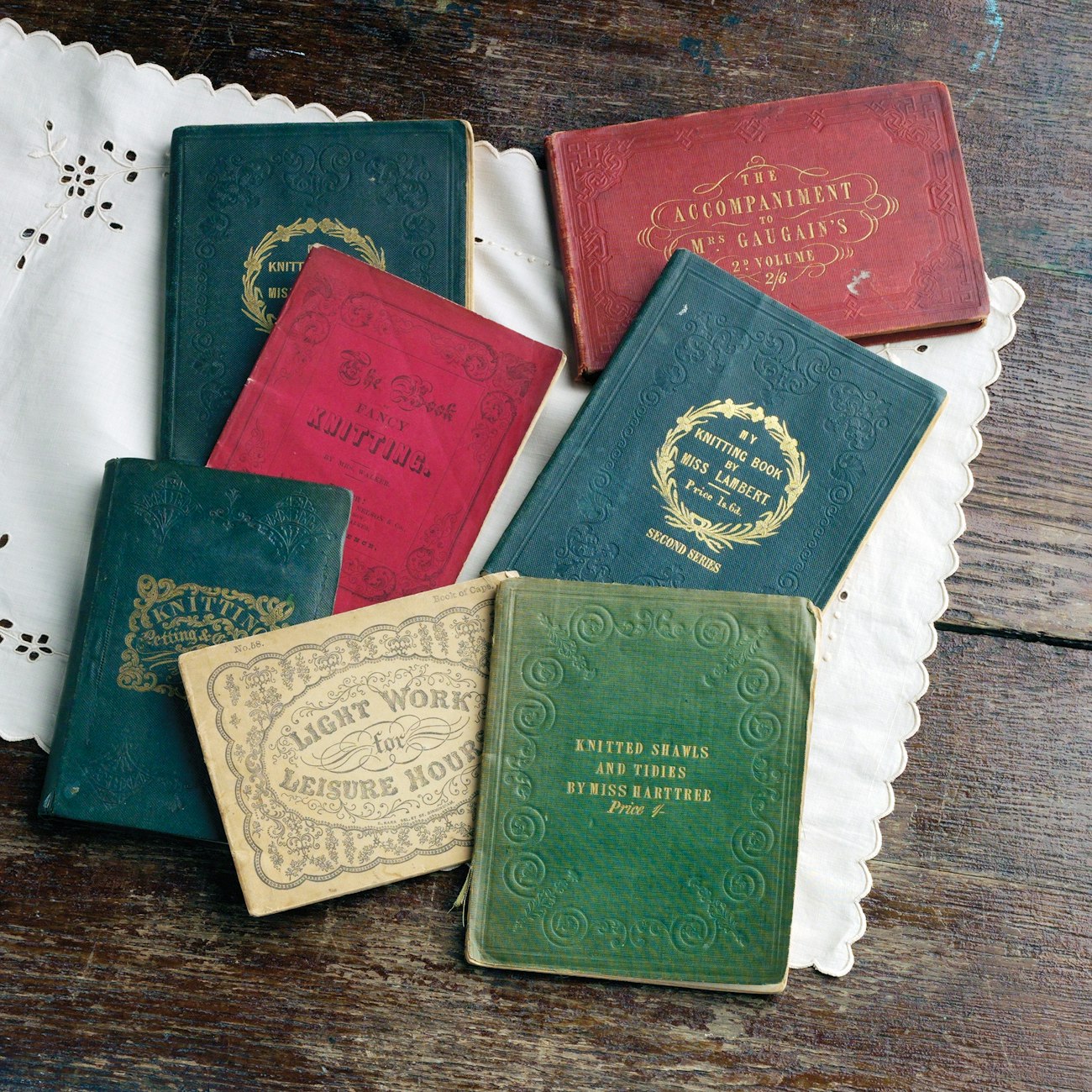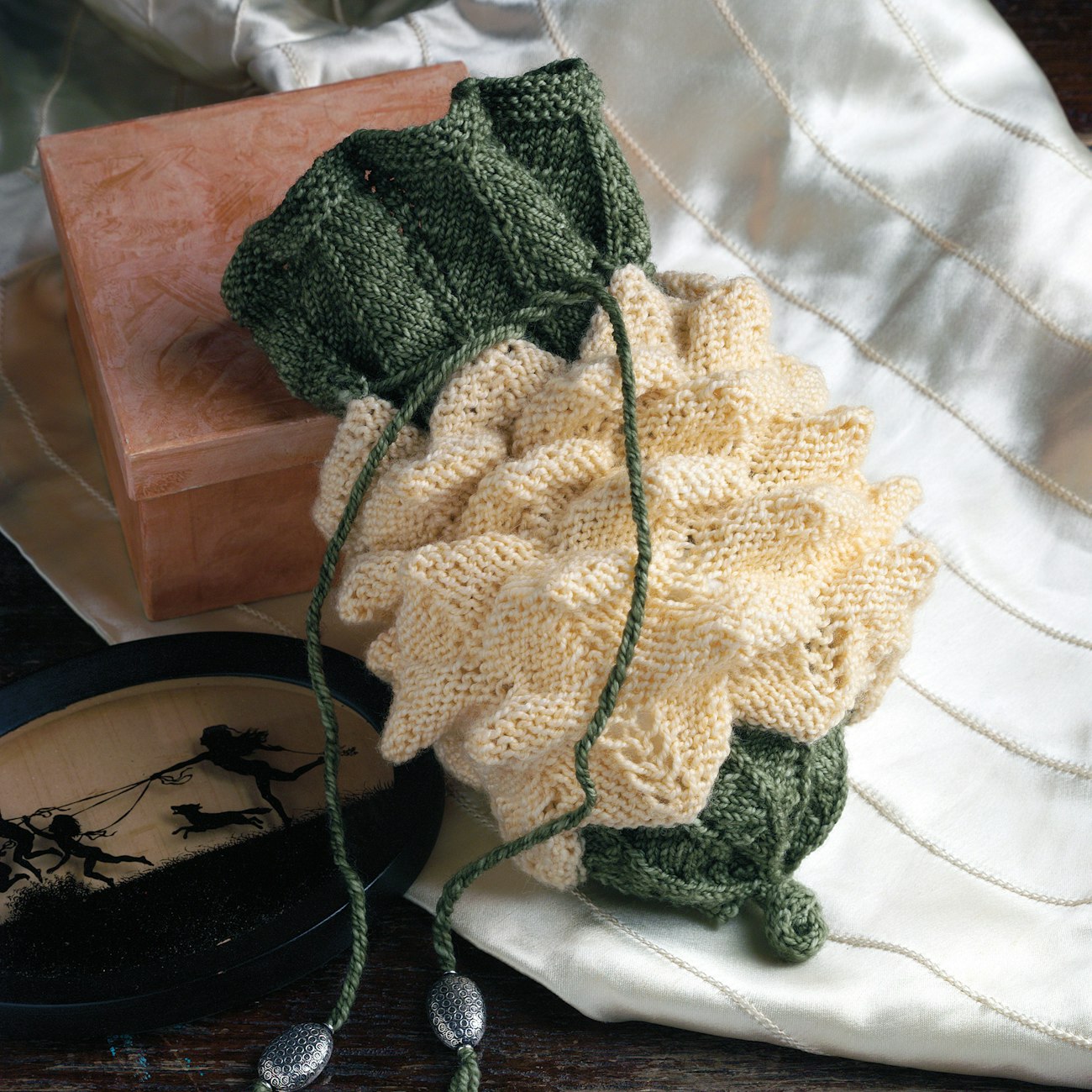Several years ago, frequent PieceWork contributor and knitting book collector Donna Druchunas received a collection of Dorothy Reade’s Victorian knitting books from her daughter, Donna Reade Nixon. The books were published between 1841 and 1900.

Dorothy Reade’s Victorian knitting book collection contains books published between 1841 and 1900. Photo by Joe Coca
In Dorothy’s article “The Delights and Perplexities of Victorian Knitting Books” from PieceWork’s January/February 2012 issue, Donna recalls, “My enjoyment began as soon as I began to read the titles.” The bounty included such gems as:
- Mrs. Gaugain. The Lady’s Assistant for Executing Useful and Fancy Designs in Knitting, Netting, and Crochet Work. London: I. J. Gaugain and Ackermann and Co., 1841.
- Mrs. Gaugain. The Accompaniment to Second Volume of Mrs. Gaugain’s Work on Knitting, Netting, and Crochet, Illustrating the Open Patterns and Stitches To Which Are Added Several Elegant and New Receipts. London: I. J. Gaugain and Ackermann and Co., 1844.
- Mrs. G. Linnaeus Banks. Light Work for Leisure Hours: Designs in Ornamental Needlework of All Kinds. London: Faudel, Phillips, & Sons, n.d.

Donna Druchunas’s Pineapple purse adapted from the instructions in an 1846 knitting book published in London. Photo by Joe Coca
Gentle readers, as an assistant editor at a major needlework-book publisher, I can hardly imagine the reaction from you, our customers, if we published knitting books with such titles today.
Yet as Donna explains, the Victorians were not really so different from us. “Like so many Victorian needlework publications, these are all compact, portable, just right for keeping in one’s knitting basket. They range in length from just a few to hundreds of tiny pages. Many vintage knitting books are available online, but I feel a special connection with the past when I hold an actual book and think of others who have held the same book, followed its instructions, knitted its projects. I also wonder how the author felt when she held the first copy of her book in her hands.”
I wholeheartedly agree—there is nothing quite like the intimacy of holding a book and uncovering its treasures. Maybe those Victorians are not so weird after all.
Interested in learning more about the Victorians? Donna’s project and other articles can be found in the January/February 2012 issue of PieceWork.
Also, remember that if you are an active subscriber to PieceWork magazine, you have unlimited access to previous issues, including January/February 2012. See our help center for the step-by-step process on how to access them.
Elizabeth Prose is a former associate editor of PieceWork.
Originally published October 16, 2017; updated March 4, 2024.

